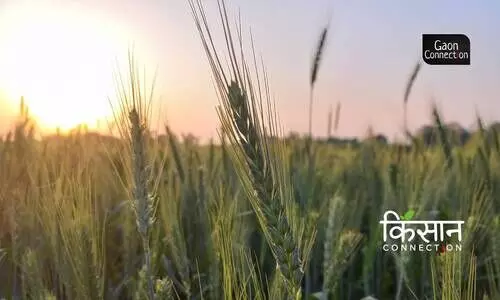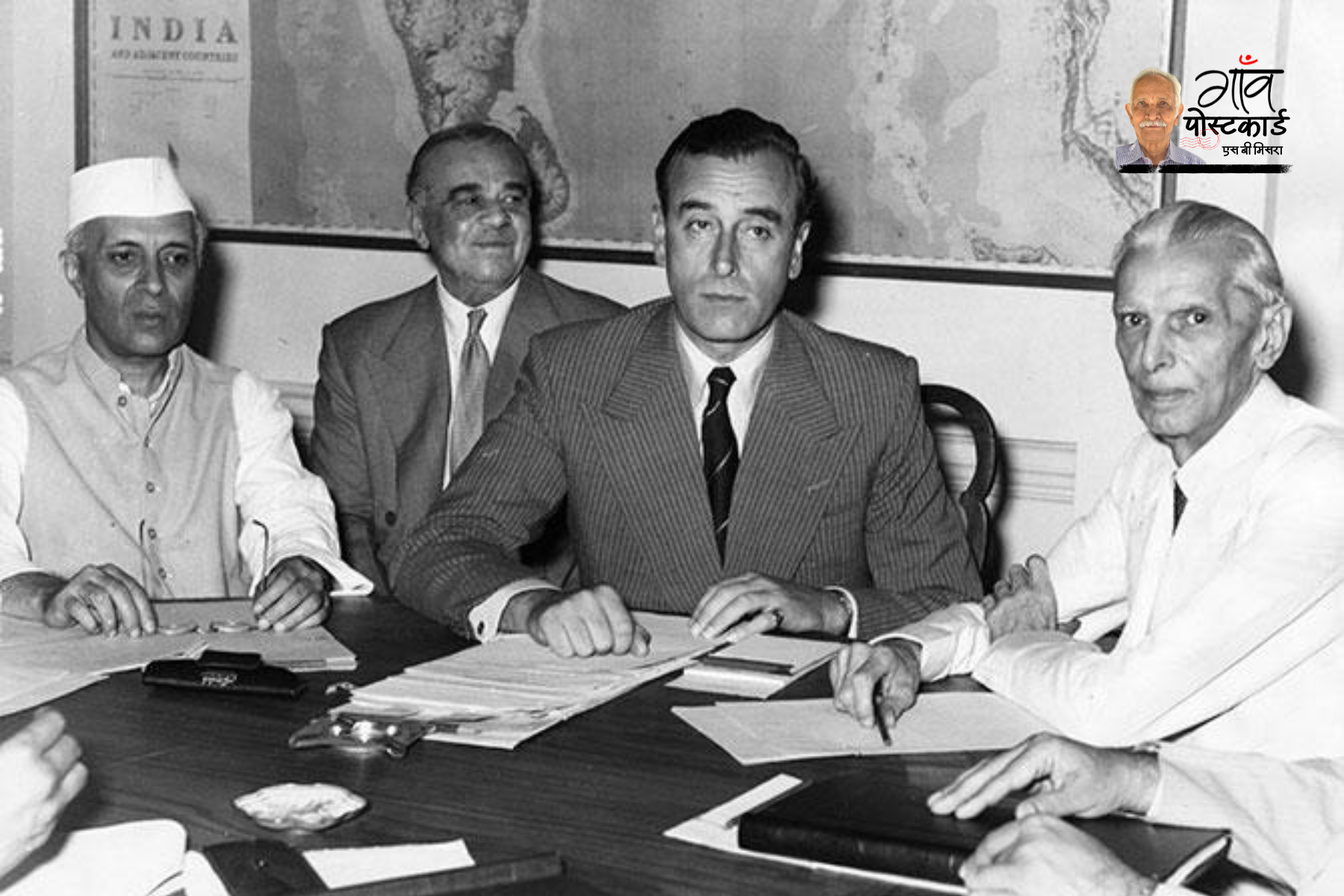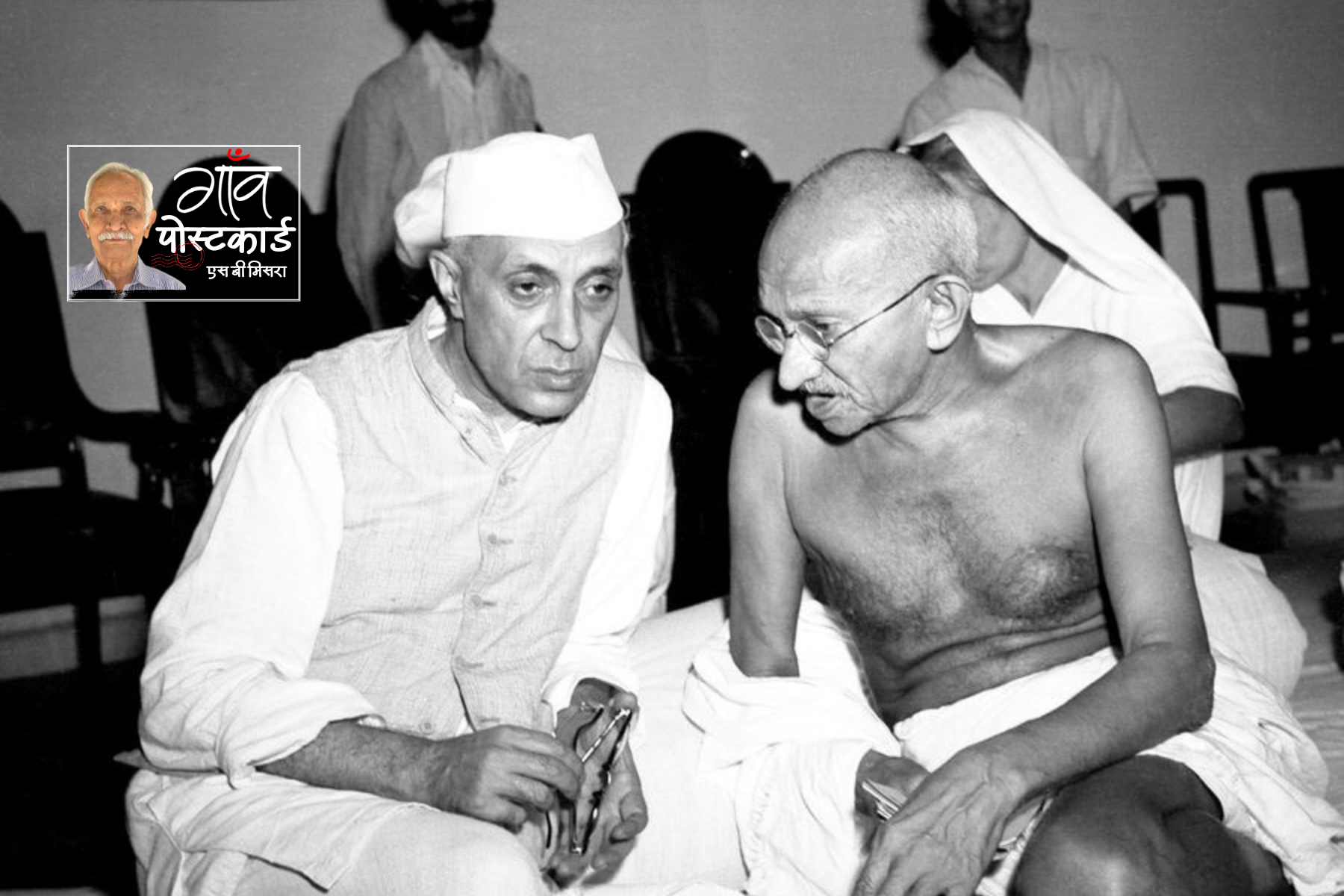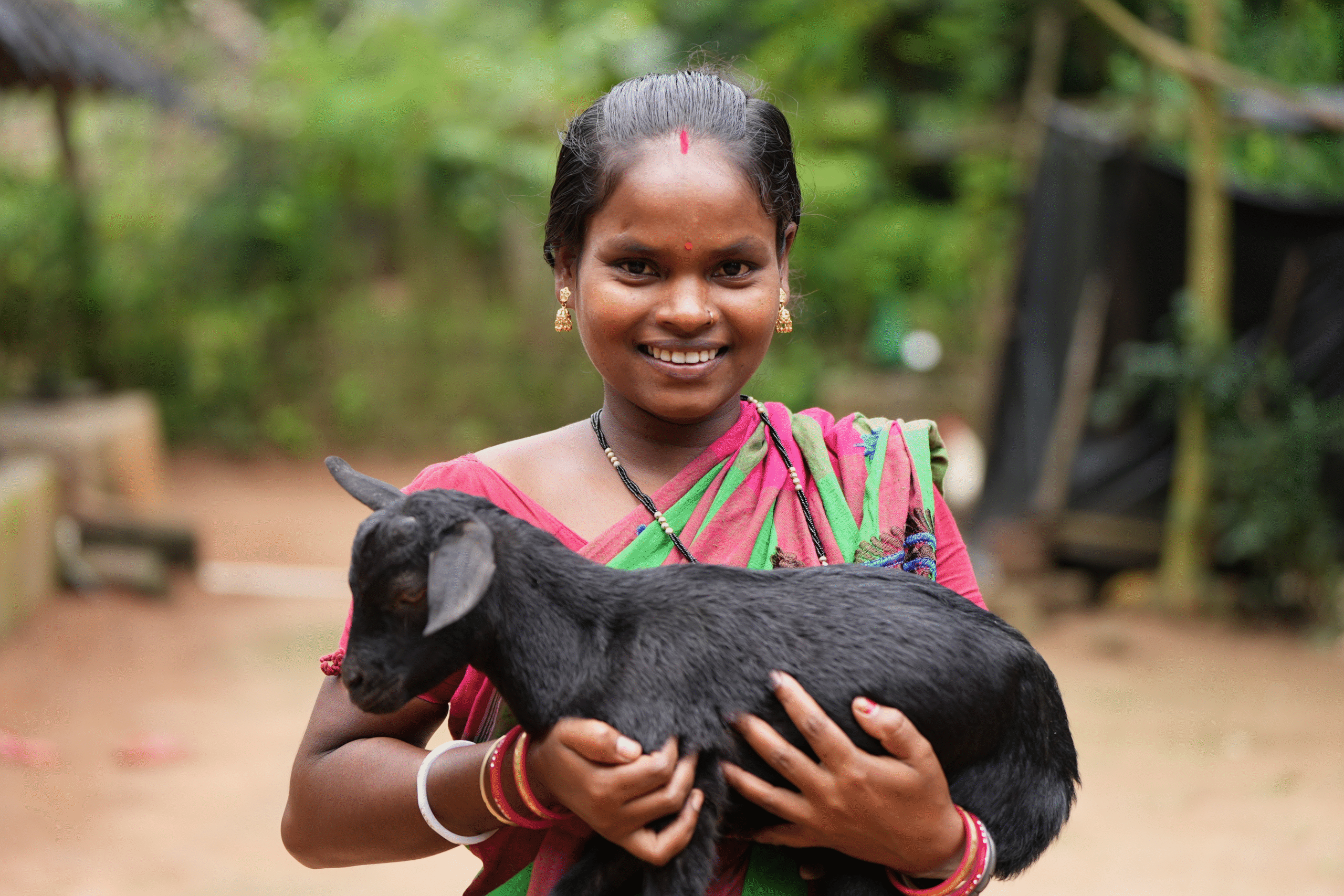For the last 26 years, Vikas Choudhary has been cultivating wheat on his 28 hectares [70 acres] of agricultural land in Haryana’s Karnal district and he asserts that the weather has never been this hot in February.
“Even though last year was unexpectedly hot, the heat waves arrived in March. The heat would definitely won’t allow the wheat grain to ripen fully and it would shrink the size of the grain,” the farmer who lives in Karnal’s Taravari village, told Gaon Connection.
“Last year the temperature soared in March, which reduced the production from 28 quintals per acre to 23 quintals per acre [1 quintal= 100 Kilogrammes]. I had sown wheat on 21 hectares [52 acres] last year,” the farmer added. The difference of five quintals per acre cost the farmer a loss of at least Rs 500,000.
“We are adopting measures like increasing the frequency of irrigation and spreading parali [crop stubble] on the soil surface to maintain the moisture content,” the farmer said.
About 700 kilometres away from Choudhary’s Taravari village, Mohammad Riyaz, a 60-year-old farmer in Uttar Pradesh’s Barabanki is grappling with similar woes.
Also Read: A farmer in Barabanki switched to cultivating gladiolus flowers and has never looked back
“Usually, the wheat crop requires three cycles of irrigation. But such is the heat that I am already watering my wheat crop for the fourth time and the crop will be ready for harvest by April. That means I’ll have to water the crop for at least two-three times more. This has doubled my cost of irrigation by diesel water pumps. It used to be around Rs 4,200 but now I will have to spend almost Rs 9,000,” Riyaz, a farmer from Chiriya village told Gaon Connection.
The farmers’ complaints about the vagaries of the weather are not unfounded. As per a press statement issued by the India Meteorological Department [IMD] on February 23, the maximum temperatures are ‘very likely to be above normal by 3 -5°C over most parts of North-west, West, Central and East India during the next 5 days’.
The IMD statement further highlighted that these above normal temperatures will adversely affect the wheat crop.
“This higher day temperature might lead to adverse effect on wheat as wheat crop is approaching reproductive growth period, which is sensitive to temperature. High temperature during flowering and maturing period leads to loss in yield. There could be similar impact on other crops and horticulture,” it added.
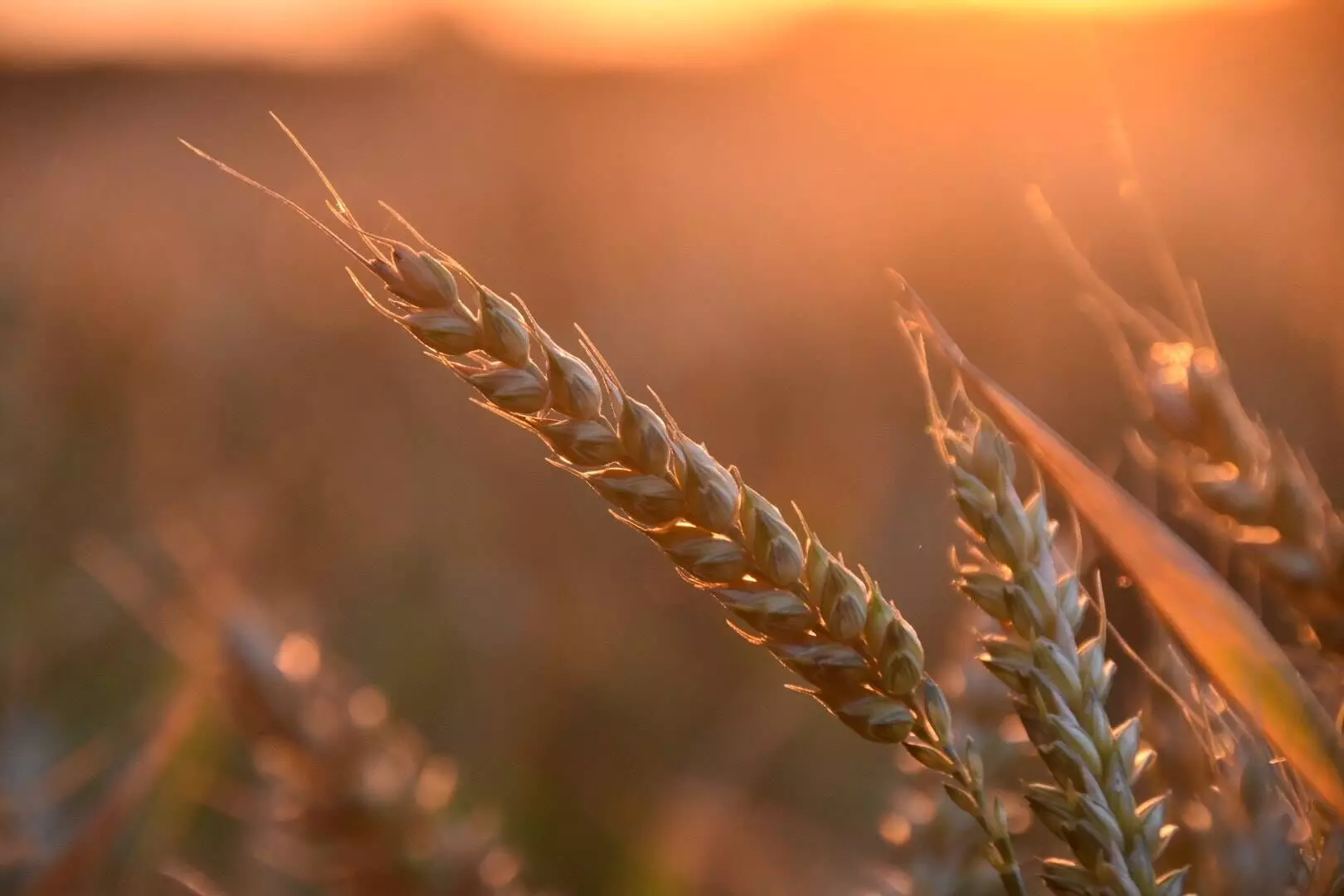
When asked about the scientists’ advice to sow their wheat crops a bit earlier by November, farmers told Gaon Connection that the delay is caused by the late arrival of monsoon rains.
‘Anti-cyclone in Arabian Sea to be blamed’
Interestingly, the maximum temperature of 33.6 degrees Celsius recorded in New Delhi on February 20 is the highest for the month of February since 2006. In 2006, a higher figure of 34.1 degrees was reportedly recorded on February 26.
When asked about the reason behind such unprecedentedly high temperatures being recorded in February, Mahesh Palawat, vice president of meteorology and climate change at private weather forecast website Skymet Weather told Gaon Connection that the formation of an anti-cylone in the Arabian Sea is the primary reason behind the arrival of hot winds across the northern plains in India.
“This anti-cyclone which is hovering around the north-eastern Arabian Sea is sending hot winds from Sindh and Balochistan regions of Pakistan towards India’s northern plains. As a result of the flow of these winds, the cooler winds from the Himalayas are also unable to provide any respite which has led to such hot weather in states like Haryana, Delhi, and Uttar Pradesh,” Palawat told Gaon Connection.
Talking about the changing weather patterns in the light of an adversely changing climate, Palawat added that the agriculture sector is set to face the most serious ramifications.
“Both the farmers and the government need to think of resilient measures to combat climate change. This year too, farmers who had sown wheat a bit earlier are in a better position than the ones who sowed it late. Farmers need to readjust their agricultural calendars and timing of cultivation. The government should come up with heat resistant crops,” he said.
Agricultural scientists advocate early sowing of wheat, heat tolerant varieties
Anuj Kumar, Principal Scientist at the Karnal-based Indian Institute of Wheat and Barley Research (IIWBR) said that it is still too early to predict the impact of the sudden rise in temperature on the wheat crop.
“However, if the heat spell extends longer, the yield will be impacted for sure. The wheat varieties we are using at present are heat tolerant but only to an extent,” the scientist said.
Indian Council of Agricultural Research [ICAR] has come up with a new wheat variety — HD-3385 — which Kumar said can be more heat-tolerant but he underlined that no variety can bear prolonged heat at the crucial growth stage.
Meanwhile, scientists at the Krishi Vigyan Kendras in Uttar Pradesh are advising farmers to readjust their agrarian calendars to cope up with an adversely changing climate.
Also Read: Climate change fears come true as country witnesses another spell of heat wave
Sandeep Arora, Principal Scientist at the Krishi Vigyan Kendra in Uttar Pradesh’s Hardoi district told Gaon Connection that the rising temperatures in the state are adversely affecting the crops not only by causing heat-related damage but also by killing the crop-friendly microbes in the soil which are vital for the optimum growth of the crops.
“The weather has been irregular for the last five years or so. In such conditions, farmers need to be prudent about the reality of the weather cycle which is shifting now. The crop cycle which is being followed as per the traditional understanding of the farmers needs to be changed as per the present circumstances. Farmers need to sow their crop early in the year to evade the hot weather conditions in February-March,” Arora told Gaon Connection.
Echoing Arora’s opinion, Dheeraj Tiwari, the Principal Scientist at the Krishi Vigyan Kendra in Uttar Pradesh’s Unnao district informed that the stage in which the wheat crop is presently in, it requires an optimum temperature of 20 degrees to 22 degrees celsius.
“However, the temperature is constantly hovering around 30 degrees these days. To make matters worse, it is windy as well. Such high temperatures will dry the wheat grain after fruition which will have a serious impact on the yield. The farmers need to keep their fields moist by watering them whenever needed and it should be ensured that they don’t irrigate when hot winds are blowing,” he said.
“Also, the farmers need to sow their wheat crop earlier in the year. By November, the sowing should be complete as it takes almost three months for the wheat to ripen for harvest. This way, farmers can evade the hot weather conditions in February-March,” the scientist added.
Farmers blame delay in monsoon for delay in wheat sowing
When asked about the scientists’ advice to sow their wheat crops a bit earlier by November, farmers told Gaon Connection that the delay is caused by the late arrival of monsoon rains.
Randheer Yadav, a 42-year-old farmer from Unnao’s Bhagedi Kheda village complained that sowing wheat in November was impossible for him as the paddy couldn’t be harvested till December.
“The monsoon rains did not arrive till September. We somehow kept the paddy crop alive by incessant irrigation. However, there is no substitute for the rain when it comes to paddy. The fields were submerged till October and the paddy couldn’t be harvested till December. How could I have planted wheat in December? I am worried that I will have to choose between paddy and rice as both the crops are hard to sustain in this rapidly changing weather,” the farmer told Gaon Connection.
Govt sets up committee to assess impact of high temperature on wheat production
Meanwhile the Union government, on February 20, formed a committee to assess the damage caused by the ongoing hot weather conditions. Following the announcement of the formation of the committee, Union Agriculture Secretary Manoj Ahuja told the press that the committee will come up with advisories to help farmers by using micro-irrigation techniques.
Gyanendra Singh, Director of Karnal-based IIWBR, one of the committee members, told Gaon Connection, “We are preparing recommendations along with an advisory for the farmers to find solutions which can tackle the impact of heat on the wheat crop. We will be coming up with solutions by early next week”.
Last year, similar weather conditions had compromised India’s wheat production by 2.75 million tonnes or 2.5 per cent of the total output.
With inputs from Virendra Singh in Barabanki, Sumit Yadav in Unnao, Aishwarya Tripathi in Lucknow

